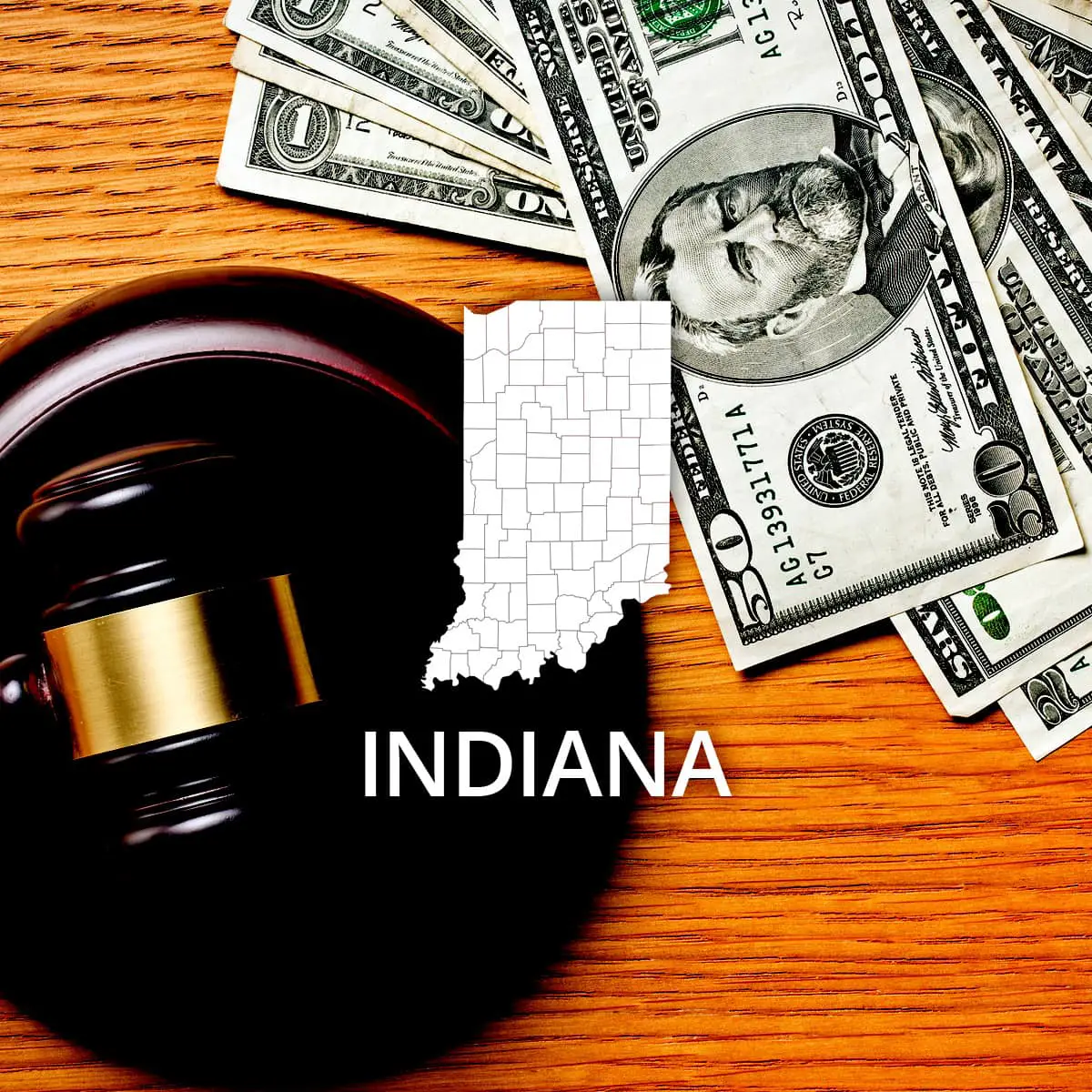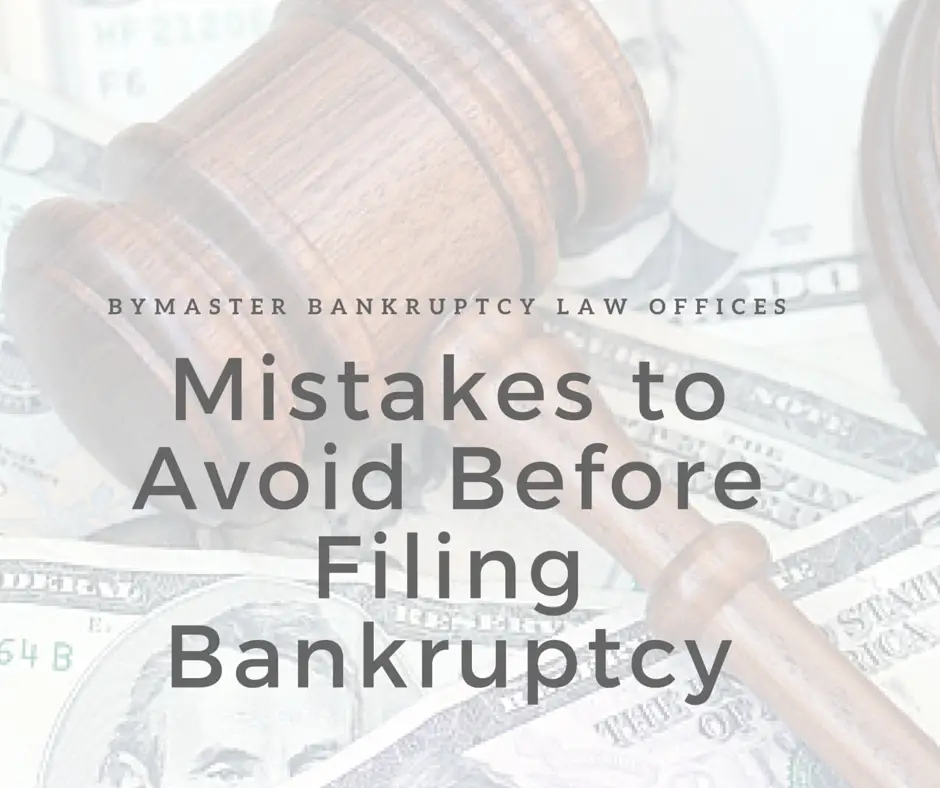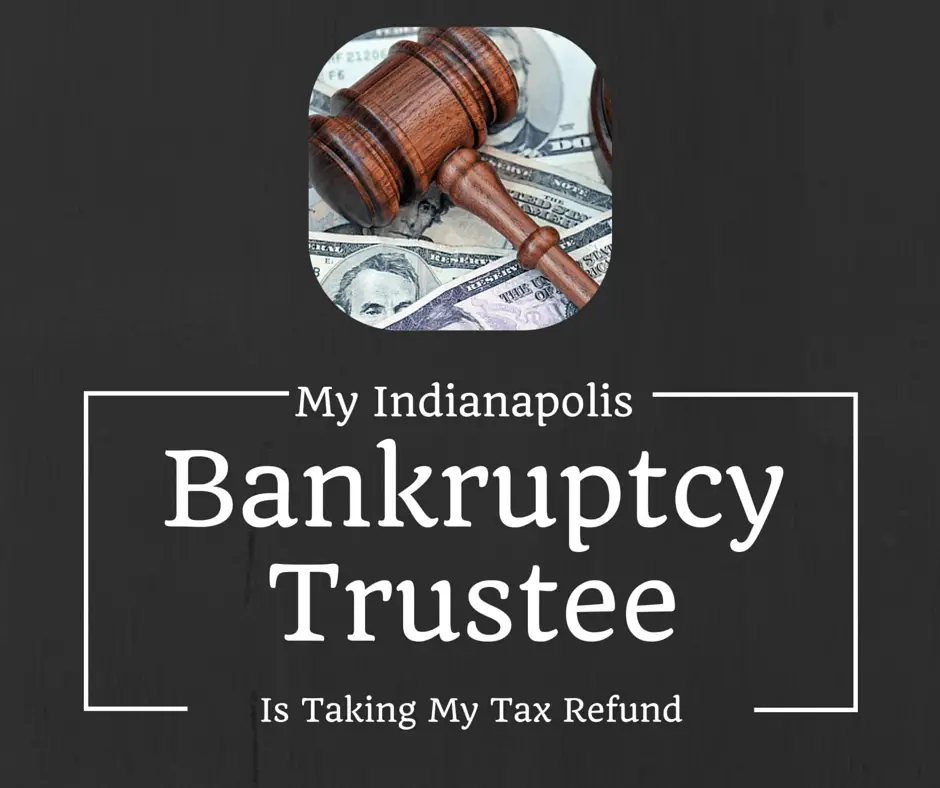Pension And Retirement Benefits
- Retirement plans for the portion the debtor contributed are exempt under IC 34-55-10-2
- Pensions for public employees are exempt under Ind. Code § 5-10.3-8-9.
- Benefit plans for legislators and retirement benefits for teachers are exempt under Ind. Code §§ 2-3.5-4-11 2-3.5-5-9 5-10.3-8-9 5-10.4-5-14.
- Pension fund for firefighters and police are exempt under Ind. Code §§ 36-8-7.5-19 36-8-7.5-22.
What Are The Steps To Filing Chapter 7 Bankruptcy
We have discussed the do-it-your yourself steps. Nonetheless, the success of your Chapter 7 bankruptcy most likely will lie in finding an experienced bankruptcy attorney. Once you decide on an attorney, you can refer creditors to your lawyers office. Filing the petition will trigger an automatic stay, which means creditors cant pursue lawsuits, garnish your wages or contact you about your debts.
Dont take our word for it. I would counsel someone who is considering Chapter 7 bankruptcy to consult with an attorney to discuss the ramifications of filing for bankruptcy, Sinha says. Bankruptcy can have a long-term impact on a person’s credit score and ability to obtain credit in the future.
Here is a potential timetable:
What Is The Statement Of Current Monthly Income For In A Indiana Bankruptcy Case
This form determines whether youâre eligible to file for Chapter 7. And it has the most confusing name of any of the free bankruptcy forms for Indiana. Despite its name, the Statement of Current Monthly Income is not asking for your current monthly income. Rather itâs asking for your average income and your spouseâsaverage income over the last 6 monthsbefore your filing date.
The Court wants to know about your income from all sources over the past 6 months, including employment, side-businesses, family contributions, and government benefits like SNAP or unemployment. If your average household income for the past 6 months is below themedian household income for families of your size, then great! – youâre eligible to file for Chapter 7. If youâve earned above the median income, you may be ineligible for Chapter 7. If youâre a disabled veteran or someone who owes primarily business debt, you can fill out theStatement of Exemption from Presumption of Abuseexplaining that you are still eligible for Chapter 7. But otherwise, if youâre over the median income, you must complete theChapter 7 Means Test Calculation. To be honest, that form is a beast. You should definitelyhire a lawyer if you need to complete that particular free bankruptcy form for Indiana.
Also Check: What Does Debt Mean
Exemptions In Indiana And Kentucky
The exemption is only $350 in Indiana. But, in Kentucky, you have a $1350 wild card exemption plus one-half of the unused real estate exemption. If you rent or have no home, this is about an additional $14,450 in 2022. Up to $15,800 might be available to keep a tax refund or tax withholding in a Kentucky Chapter 7. Also, these exemptions increase every year.
Exemptions To The Chapter 7 Means Test

There are exemptions to the means test for some individuals. For example, if the majority of your debts are non-consumer debts, or if youre a disabled veteran who incurred your debt during active duty or while performing homeland defense, then youll be exempt from the means test, regardless of your income.
Recommended Reading: How Long Does Bankruptcy Chapter 7 Take
Chapter 7 Bankruptcy In Indiana: What You Should Know
On Behalf of Lynch & Belch, P.C. | Sep 16, 2022 | Chapter 7 Bankruptcy
Life can be challenging and expensive. Sometimes, your debts get out of control and you find yourself in a position of having few options to resolve those debts and get out from under them so that you can live your life again without the financial stress that you are experiencing day and night.
Americans across the country are experiencing several different types of debt and Indiana is not exempt from the challenges of navigating through the financial hardships and trying to figure out what is best for you.
Recommended Reading: Foreclosured Homes For Sale
Do I Qualify For Bankruptcy Part : Filing A Chapter 7 Too Recently To Re
Chapter 7 bankruptcy can only be filed every 8 years. Therefore, every time a person near the Indianapolis area wants to file Chapter 7 for a second time, it is important to check if any previous bankruptcy has been filedwithin 8 years. Remember, you must go from the FILING DATE of the previous case to make sure that the proper 8 years have past. If 8 years have not passed since you filed Chapter 7 bankruptcy previously, you will still very likely be eligible for some form of Chapter 13 bankruptcy. A Chapter 13 case can also be used to stop your creditors and can also be a very powerful solution dealing with debt.
Also Check: What Happens When You File Chapter 7 Bankruptcy
D Indiana Debt Payoff Planning
You may be able to get out of debt through debt payoff planning, which is often a combination of trying to reduce expenses and putting extra cash into specific debts to avoid interest. You may not be able to do this because of the size of the financial hardship, but if you are interested, we build the Savvy debt payoff planner to help prioritize your debts. The app saves about $2,000 in interest on average by using the savvy debt payoff method instead of the snowball debt payoff method.
S To Filing Bankruptcy Chapter 7
If after speaking to one of the attorneys at Perez & Perez Bankruptcy we jointly determine that it is in your best interest to file a Chapter 7, we will get you started with the process to file.
The first step is to retain our firm to represent you in the case. We can advise you on how to deal with creditor calls and collection actions starting on day one. We then set you up on a payment plan for the attorney fees and costs associated with filing your case. Once that’s complete, we gather some basic documents from you and prepare a rough draft of your petition. We’ll then set up a “signing appointment” where we can review those together and update them for filing with the court. Every appointment you have with us will be with a licensed attorney and you will have every opportunity to ask questions. We want you to be completely comfortable that you understand everything about the filing. After the signing appointment, we file the case.
Filing the bankruptcy case with the court gives us an immediate court order stopping all collection actions against you. This is known as the automatic stay. As soon as your case is filed, any remaining collection calls, lawsuits, garnishments, or other forms of collection against you must stop immediately!
If the trustee finds any assets that can be used to pay your creditors, they will work on liquidating those assets and paying the creditors.
Don’t Miss: How Much Dept Is America In
What Does Bankruptcy Include
Once you file for bankruptcy in IN, the courts put in place an order called an Automatic Stay. This order will stop debt collection calls, wage garnishments, and additional claims. Keep in mind that payments regarding child support and criminal cases will still need to be made during this time.
In any event, Bankruptcy will be able to include:
- medical expenses
Again, unless you are filing a complex Chapter 13 case, you will lose all assets associated with a Chapter 7 Bankruptcy protection. You will, however, be able to prevent any and all collections from occurring as long as they were incurred before the date of filing and discharge.
Contact Our 0% Down Bankruptcy Law Firm In Indiana
Bankruptcy lawyers at Koehler Law Office want to help you conclude this stage of financial instability by making informed, guided financial decisions. We offer free consultations and 0% down to begin filing bankruptcy. Allow us to help you get your finances back in order and put this difficult time behind you. Our lawyers will travel to you for a meeting, so contact us today at 785-8191 or contact us through email.
Also Check: How Long Does Bankruptcy Affect My Credit Rating
Should You File Chapter 7 Bankruptcy
Typically, Chapter 7 Bankruptcy is the best option for most people. Indeed, it is not necessary for a debtor to claim extreme poverty to file a chapter 7. Many debtors who file chapter 7 bankruptcies are employees of for-profit businesses who own private property such as a car, or may even have a mortgage on their home. Numerous debtors who wish to retain a car on which they owe a debt, sign reaffirmation agreements allowing them to retain the cars while keeping the debt that they owe on them. This avoids repossession of that car by the credit lender. Of course, we will evaluate your financial situation to determine which option is in your best financial interest. If a chapter 7 bankruptcy is in your best finally interest, your counsel will file your case for you electronically. People who have filed a chapter 7 bankruptcy case in the past 8 years cannot file chapter 7they have to file chapter 13. Numerous other factors determine which type of bankruptcy is your best financial interest.
A Brief Description of Chapter 7 Bankruptcy
The hearing is not in front of a judge and it is not in a courtroom. The hearing is conducted by a trusteewhich is simply an attorney who attends the hearing on behalf of all of the creditors to determine whether the debtor has any assets that he or she cannot legally protect.
What Happens After a Chapter 7 Bankruptcy?
Frequently Asked Questions Regarding Chapter 7 Bankruptcy
Q: Are student loans dischargeable?A: No.
How To Determine Eligibility Of Chapter 7 Bankruptcy In Indiana

Chapter 7 bankruptcy isnât the right option for everyone, and those looking to wipe the slate clean might be surprised to find they donât qualify. To be eligible to file Chapter 7 bankruptcy, the filer must pass the âmeans test.â The means test compares your household income to the average household income in your zip code. If you fall under the median, then you qualify for Chapter 7 bankruptcy in Indiana. If you are above the median, then you must file Chapter 13 bankruptcy. However, it is possible to prove that due to your current debt situation, and after all your expenses, it would be virtually impossible for you to survive on a Chapter 13 repayment plan, opening up the opportunity to file Chapter 7.
You May Like: Are Federal Bankruptcy Courts Shut Down
Filing Bankruptcy In Indiana
Youll notice from the table of the contents that we focus specifically on Chapter 7 and Chapter 13 bankruptcy. Why? Because these two types of bankruptcy are the most common bankruptcy in America . There are other types such as the Chapter 11 and Chapter 11 subchapter 5 bankruptcies, but these are far less common for consumers .
Chapter 7 bankruptcy is also known as the liquidation bankruptcy. Chapter 13 bankruptcy is also known as wage earners plan. We will cover these in greater detail
Bankruptcy Laws In Indiana
While many of the laws that govern bankruptcy in Indiana are federal, there are some state laws you need to be aware of as well. Lets run through everything you need to know about bankruptcy laws in Indiana.
If you are declaring a Chapter 7 bankruptcy in Indiana, you have to make sure your income passes a means test. In other words, your income level will determine how you can move forward. If you earn less than the Indiana median income for your household, you can move forward automatically. But if you dont, there are some hoops youll have to jump through to qualify.
Before filing bankruptcy in Indiana, you must attend a credit counseling service session and take a debt management course. Each district in Indiana has approved places where you can do these things.
Its important to note that you may not be able to exempt all your property from bankruptcy in Indiana. The appointee who is overseeing your bankruptcy case will make a decision when it comes to all your nonexempt property and whether or not you have to sell it to satisfy outstanding debts. Its also good to note that its possible to file a joint bankruptcy to double your exemption amount, but if only one of the spouses has ownership of the property, it cannot be doubled.
Don’t Miss: What Happens When You Declare Bankruptcy In Australia
How To File Bankruptcy For Free In Indiana
Upsolve is a nonprofit tool that helps you file bankruptcy for free.Think TurboTax for bankruptcy. Get free education, customer support, and community. Featured in Forbes 4x and funded by institutions like Harvard University so we’ll never ask you for a credit card.Explore our free tool
In a Nutshell
Filing for bankruptcy doesnât have to be scary and confusing. We provide helpful tips and resources to help you file Chapter 7 bankruptcy in your state without a lawyer.
Written byAttorney Andrea Wimmer.
Unmanageable debt can come from many situations. It may be the result of unexpected medical expenses, a sudden job loss or layoff, or even the simple inability to find a job after college. The to file bankruptcy is never easy, but it shouldnât cause great distress. Bankruptcy laws exist to help people out of these kinds of financial situations â and to get out from under the stress of wage garnishments, debt lawsuits, and the constant harassment of creditor letters and phone calls.
In Indiana, the Crossroads of America, people trying to get a fresh start through a Chapter 7 bankruptcy can seek bankruptcy protection with an attorney or without.
Take A Credit Counseling Course
You have to complete a within the 180 days before you file. The course is usually offered online or by telephone, and you have to take it from an approved provider. The purpose of this course is to help you look at your financial situation and develop a personalized plan to address your debt. It covers all your debt relief options, including Chapter 7 and Chapter 13 bankruptcy.
The course fee is usually under $50. When you sign up, you can apply for a fee waiver if you canât afford the cost. When you get your certificate of completion, itâs critical to send it to the court when you send your bankruptcy petition. The court will dismiss your case if you donât do this. This rule is very strict, and it causes big problems if you re-file later.
Don’t Miss: How Many Times Are You Allowed To File Bankruptcy
Chapter 7 Bankruptcy Indiana Income Limits
The Indiana median income figures for the Means Test are adjusted periodically, based on IRS and Census Bureau data. Indiana median income for bankruptcy cases filed on or after April 1, 2022, is:
| # of People | |
|---|---|
| 9 | $144,502 |
For Indiana households with more than 9 members, add $9,000 for each additional family member. You should always double-check the US Trustees website for the most current figures when calculating the Means Test.
What Is Schedule H For In A Indiana Bankruptcy Case
Schedule D and Schedule E/F of the free bankruptcy forms for Indiana asked you to list every debt you owe. Now on Schedule H, the Court wants to know whether you have any co-debtors for any of those debts. A co-debtor is someone who is liable for one of your debts if you donât pay it. Common examples of co-debtors are a parent who acted as your co-signer for your car, or an ex-spouse who jointly purchased a home with you and is also listed on your mortgage. Schedule H requires you to list all your co-debtors because your co-debtors are entitled to get notice of your bankruptcy filing.
You May Like: Does Bankruptcy Clear All Debt Canada
What Is Schedule E/f For In A Indiana Bankruptcy Case
Schedule E/F of the bankruptcy forms for Indiana first asks you to list âpriority debts,â like child support, alimony, and recent taxes. These debts are not secured by collateral, but still canât be erased in bankruptcy for public policy reasons. After priority debts, Schedule E/F of the free bankruptcy forms for Indiana asks you to list any generalunsecured debts you have. General unsecured debts include credit card bills,medical bills, personal loans, civil judgments and every kind of debt other than secured and priority debts. With a few exceptions like student loans, general unsecured debts are erased in bankruptcy.
For every debt that you list on the Schedule E/F and Schedule D, you should list the name of the creditor, the creditorâs address, and the amount of the debt. Donât worry too much about listing the exact amount of the debt. Just do your best to list everyone you owe.
Secured And Unsecured Debt In Chapter 13

Chapter 13 lets you establish a payment plan to repay your secured creditors over three to five years. The court-approved plan will often force your secured creditors to restructure your loan to pay it in installments and force them to forgive some of your debts. If you want to keep your home in a Chapter 13 case, you will need to continue making payments to your lender outside of bankruptcy.
Unsecured creditors generally get a better deal when you file for Chapter 13 than when you file under Chapter 7. However, they are rarely paid what they are owed because the Chapter 13 plan usually pays those creditors with whatever disposable income is left over after the secured creditors have been paid. Any unsecured debt that is not paid by the time the plan is completed will be discharged by the court.
Also Check: How To Build Credit After Bankruptcy